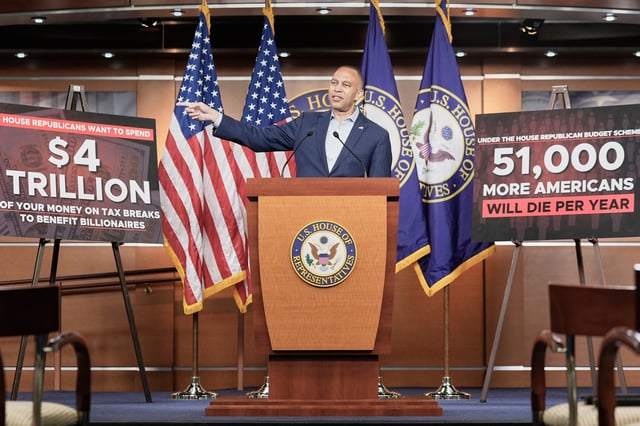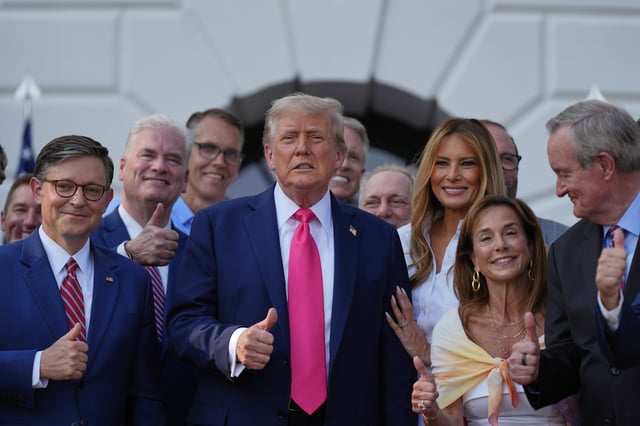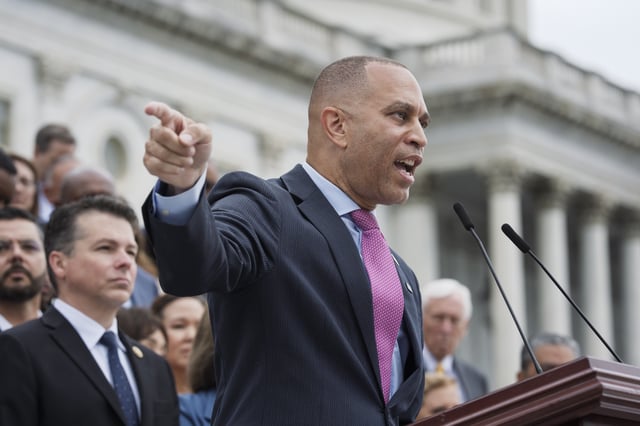Overview
- House Minority Leader Hakeem Jeffries led a town hall hosted by Rep. Troy Carter in New Orleans to denounce the new law’s Medicaid work requirements and restrictions on food assistance.
- The reconciliation measure combines about $4.5 trillion in tax cuts—including a new provision exempting tips from taxation—with $1 trillion in reductions to federal Medicaid spending.
- The Congressional Budget Office estimates that 11.8 million adults and children could lose health insurance and 3 million Americans could be dropped from SNAP under the law.
- Louisiana faces the sharpest state impact, with projections showing a loss of one-fifth of its Medicaid budget over the next decade and risk to coverage for more than 1.5 million residents.
- Republican leaders argue the legislation will spur economic growth, bolster border security and shield most taxpayers from higher rates.



